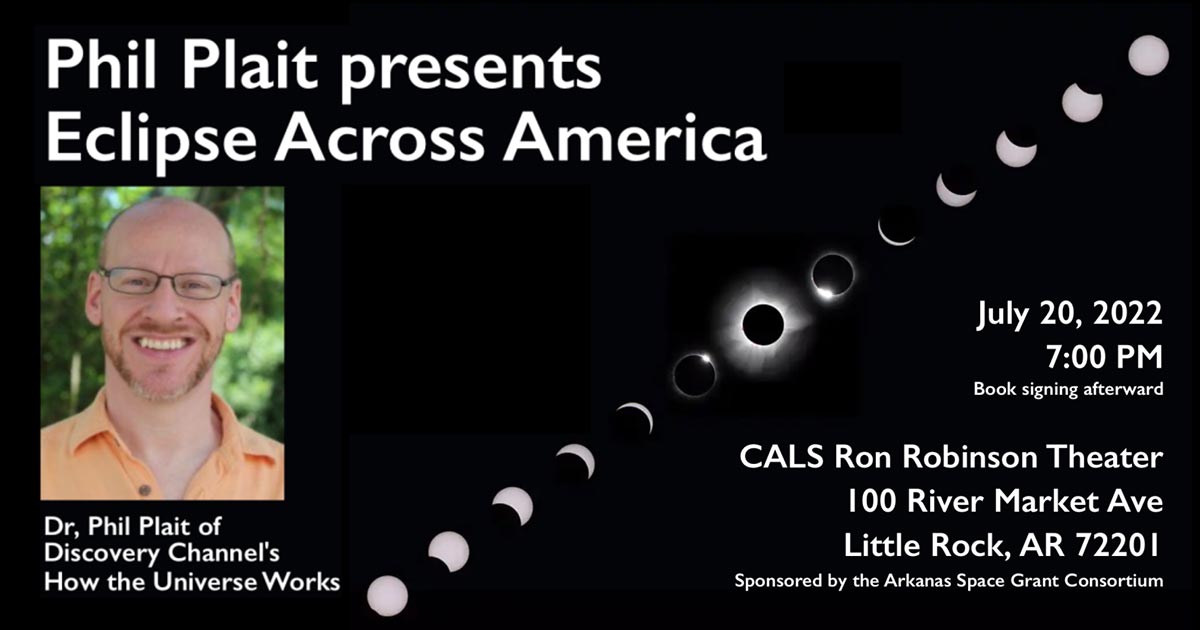UA Little Rock, CALS to Host Phil “Bad Astronomer” Plait July 20
Update: The Phil Plait talk that was originally scheduled for July 20 has been postponed until later in the fall.
UA Little Rock’s Arkansas Space Grant Consortium and the Central Arkansas Library System will sponsor a presentation and book signing with astronomer Phil Plait Wednesday, July 20.
The talk, “Phil Plait Presents Eclipse Across America,” will begin at 7 p.m. in the Ron Robinson Theatre, 100 River Market Ave., Little Rock. This family friendly event is free and open to the public.
Plait will talk about the upcoming total solar eclipse on April 8, 2024. This rare celestial event will be viewable across much of Arkansas. Platt will tell you everything you need to know to safely watch the literally out-of-this-world event, explain the science, and even debunk a misconception or two about eclipses.
“The shadow of the Moon will fall along a narrow path across the US, including right through downtown Little Rock, which will enjoy 2 minutes and 30 seconds of totality,” said Darrell Health, NASA outreach coordinator with the Arkansas Space Grant Consortium. “During that time, the sky will grow dark, the stars and planets will come out, birds will stop singing, crickets will chirp, and you’ll be able to see the Sun’s corona, it’s gorgeous atmosphere normally far too faint to see from Earth.”
After spending a decade working on Hubble Space Telescope data and promoting science from a half dozen different NASA astronomical satellites, Plait has gained a unique perspective on science and how the public understands it. He’s written books on scientific misconceptions, cosmic catastrophes, and even a collection of satirical nerd insults, each showcasing his passion for science as well as his sense of humor.
His popular blog, “Bad Astronomy” – hosted at different times by Discover Magazine and Slate, and now at SYFY Wire – covers a lot of ground, from interesting scientific events here on Earth all the way out to the edge of the observable universe. He’s given talks about science (and its nemesis, anti-science) around the world. He has appeared in dozens of TV shows including writing and hosting “Crash Course Astronomy,” a 46-part introduction to astronomy on YouTube, and the Discovery Channel’s “How The Universe Works.”
